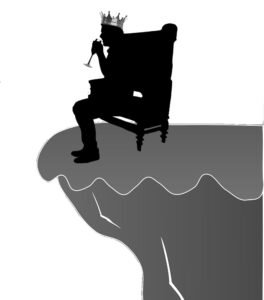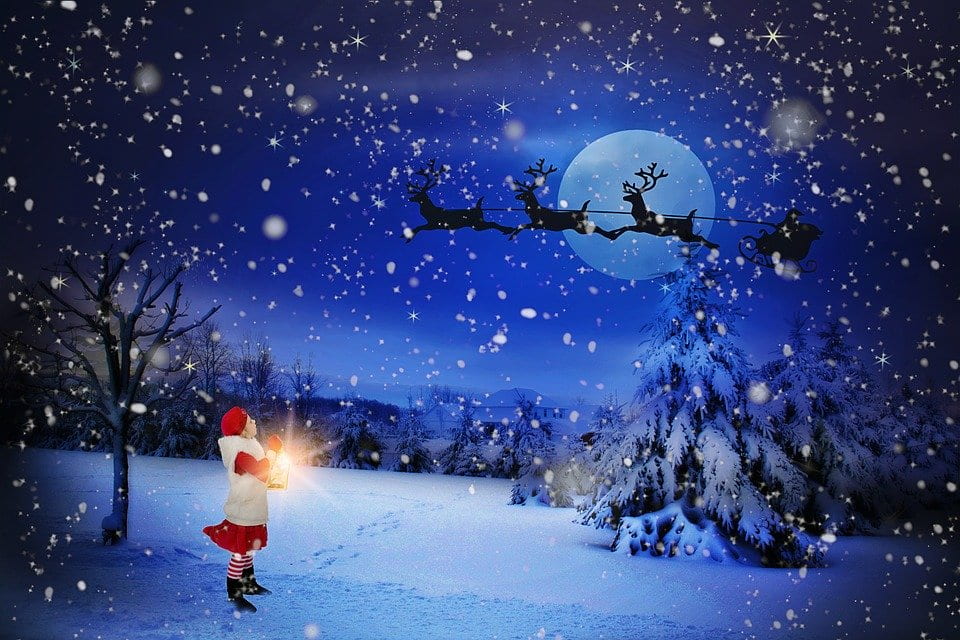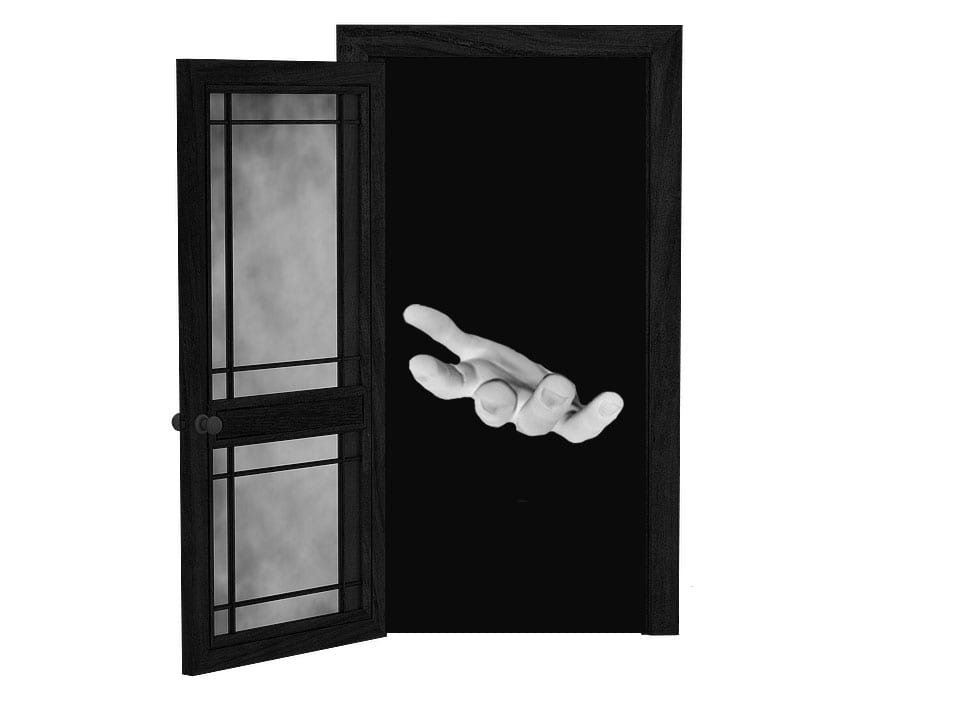Tag: Jay Willett ’20
The Strand
by Connor Zimmerman on March 6, 2020
Portfolio

by Jay Willett ’20
When they sent me here, they didn’t expect me to survive. The atmosphere is too heavy to breathe, the water’s too thick to drink, the vegetation too poisonous. A mist of emerald encompasses the air between the canyon and the ship—I had to wait for the cloud to pass before venturing back outside. Vibrations reverberated throughout, clanging the metal against the limestone it was leaning on. I was surprised that the S.S. Oblivia held up upon crash landing. It did nothing but scuff the red and blue paint of the NASA logo. Gas was sizzling by, shrouding my view through the only circular window in the ship. The dashboard had an analog counter on it, which detailed how many hours the ship’s oxygen would last. The number had dropped into the single digits last night.
Pushing the red labeled “Emergency Exit” open led me into the ravine. Today I would make the annoying trek across to the lake. Most of the filtering technology was damaged in the crash, but Memphis worked his magic and scraped together a couple of working canisters. He explained to the group that the natural water here is drinkable if we remove the Arsenic and diluted the density of the liquid. I suggested we just boil it instead. Everyone snickered at that. This would probably be my last run for water. Even if it’s just me, the fresh water could only last maybe a day or two, but at least I wouldn’t die of dehydration. Although I’m not sure suffocation is much better. It’s times like this where I missed Memphis. He’d come up with a solution.
Strapping the empty canister on my back, I watched my step as I descended from where the Oblivia was lodged. My suit had about 34% battery left, enough to make a round trip without any breaks. I tapped the wrist nav, and the screen blipped on, illuminating my tired face with the orange arrows, pointing towards my destination. I’ve made this trip plenty of times, but the terrain kept changing, so it was hard to remember by memory. Yesterday there was a river of acid that stretched at the basin, but a landslide filled the gap overnight. Now the acid had pooled into mini lakes that I had to jump over. It wasn’t difficult considering the gravity was lighter than Earth’s—something like -4m/s^2? Memphis always loved to explain this stuff to us, but none of it really stuck with me. A habitual creature at heart, as long as I was told what to do, I’d do it.
Finally, at the end of the canyon was the entrance to the forest, the Shimogaki forest. Trevor named it after Sakura’s last name after she fell tripping over a root. Her helmet cracked and the gas flooded in. It was tough to watch. Lifting my legs to dodge the overgrowth was the least of my problems though—the clearing ahead would be my final obstacle before arriving at the lake. We called it the den, where our one and only predator lived. In terms of food, we had managed to ration the freeze-dried packets we found on Oblivia. It wasn’t tasty, but it’s not like there was any other life here to hunt, or vegetables to pick, let alone eat. The only thing that dwelled her besides us—
“HHHHERRRRRRR,” it growled from across the clearing. The flash of the scales blinded me; I activated the UV shade on my helmet. Humans couldn’t look at it, not with the naked eye at least. One claw scratch from it was all it would take; the radiation emitting from under its skin was enough to do it in an instant. We called it a predator, but honestly, I don’t think it eats meat, or anything for that matter. It doesn’t move unless provoked or threatened of its territory, and it just lays in the sun soaking up the rays. Approximately 20 feet long and 10 feet tall, the creature loomed over me like I was a pebble in its path. I fired the flare, the one that Memphis invented after it tore apart the others. The projectile flew meters above the lizard’s head. It steamed heat at the familiar object. Instantly the sky grew dark. I switched from UV to night-vision and made a break for it under its legs. All light was sucked in, it wailed in torment as it was robbed of its comfort. I didn’t have a void flare for the way back, though. I’d have to get crafty.
The Lake of Shadows laid in front of me. I named this one. The arsenic tinted the water a foreboding gray. After the Oblivia’s supply ran dry, I thought we were done for, but Memphis was convinced that this muck could be drinkable under the right circumstances. I lowered the canister under the surface, letting the solution leak into the filtering chamber.
“Still using that thing, huh?” Trevor said from behind me. I turned my head without lifting the cylinder.
“Oh?” I cooed, “you’re still alive? Thought the gas would’ve done you in by now.” Trevor chuckled, sitting in the shallows and dipping his feet in the poison. He left a couple of days ago, officially putting me on my own. He said he’d rather die out in the wilderness than in a prison.
“Me too,” he said. I pulled the filled canister up onto the shore, resting it between the two of us. It would take an hour or so for it to finish filtering. We both were staring at the setting sun, distinct from the sun we knew from home with its blue blaze. Trevor tapped the top of his helmet.
“You ever think about it?”
“Hm?” I looked over to him. “think ‘bout what?”
“You know—how it’ll end?” I guess I never thought about the end. I just kind of figured it would happen. I guess dehydration’s out of the picture, but everything else was still on the table. We weren’t expected to live this long. NASA sent us here, us prisoners of five, to test the living elements of the Strand. We weren’t human to them anymore, just monkeys they could send into space. The government called it a “more ethical capital punishment,” but I couldn’t really see how.
“I don’t know,” I responded, “but this is nice, isn’t it?” I pointed to the sunset; the cerulean beams were refracting off the bleak surface. The green clouds were pierced by the light, like heaven had split apart to let us in. Trevor chuckled again.
“Yeah, I guess it is.”
alone on a pier
by Connor Zimmerman on February 27, 2020
Poetry

by Jay Willett ’20
Moss beams teal, tides crash sloping soliloquies,
withdraws, slicing bay reefs sucking out to Adrian.
Slime crawls up poles, infecting, seeping, into designed drains.
Concrete, salt cracks finish, a sand texture feeling by foot—barefoot.
Perhaps it’s selfish to think your happiness is a salvation.
I’m not so foolish as to believe that anymore. Sweetheart, I’ve run out.
Darling, we can’t dance anymore. The bar’s closing. The band went home.
You might be smiling, but in that dark, I could never truly know if you were.
Ah—right, the poem. I’ll make you feel something, that’s the point, right?
You want to cry together, laugh, sing, it’s a pretty idea.
It should rhyme, right? What’s the scheme?
Ah—
You’re expecting a trick.
Something witty perhaps?
Some of you want me to trick you.
I can’t.
It’s not that I can’t do it. I don’t want to.
Poets are all liars. It’s what we do.
Sell pieces of ourselves to you, to make you feel something.
But how could I when I have nothing to feel—to give you?
There’s no deeper meaning. No pages between the lines.
This is it.
This is the poem.
If you were expecting more, well—sorry.
I’m just a dirty poet. A liar. A fraud.
A boy alone on a pier, waiting to be proved wrong.
The Last Two
by Connor Zimmerman on February 14, 2020
Portfolio
by Jay Willett ’20
“Cheers,” she raised her wine glass, “to being single on this lovely Valentine’s Day!” We clinked and took our first sips of the red wine I bought for seven bucks at Shaw’s. She wrinkled her nose and gasped.
“That’s bitter!”
“Wine can’t be bitter.” I grinned.
“Well, it is!”
I nodded my head as I drank, catching her doubtful glance that I was enjoying the beverage. It’s true I was bluffing, and after a couple more, I couldn’t stop myself.
“ACK!” I coughed into my sleeve. She folded her arms in self-proclaimed victory. Laughter echoed from upstairs. Noise of the city filtered through cracks in the drywall. It was muzzled but audible to hear the couples dancing and kissing in the streets. She tugged at the front strands of her hair. I stamped the heel of my foot on the felt carpet. There was no avoiding it; the aroma of love had breached our walls of singularity. Our safe space for honest discussion and unrelenting cynicism had been invaded by the enamored. They took the stage while we fell silent.

“It’s not fair, you know,” she whispered.
“What?”
“I don’t know.” She fiddled with her necklace. “Like, that we are here, and people expect us to be sad and lonely tonight.”
“Hm,” was all I could respond with.
“…But I’m not—I’m here, drinking with you. And I’m happy!”
“Right.”
“I am—I’m—” Tears rolled down her flushed cheeks. I raised my glass.
“Hey—cheers.” We clinked for a second time. She laughed as I spat out my wine.
Love Limericks
by Connor Zimmerman on February 14, 2020
Poetry

Short and Sweet
by Sarah Heavren ’21
Master of the cleverest pun,
You make all the boring things fun.
I hope you know
And that I show
You’re loved by a certain someone.
Staycation
by Samantha Pellman ’20
What do I get him for Valentine’s Day?
Plan something special, they all say
So I booked a vacation
At the very best location
A ticket to Greece and it’s a one-way!
Glacier
by Jay Willett ’20
Frost gales frolic, shrouding all we could see.
Eyjafjallajökull explodes on the bended knee.
Not with fire, but with hope,
alone together on our slope.
One proposition, one question, and I’m finally free.
Money Can’t Buy Love
by Sarah McLaughlin ’23
There once was a broke college student
Who thought it would be rather prudent
To skip buying flowers
And instead work twelve hours
Which prompted his love life’s conclusion.
Dead Languages Don’t Get You Dates
by Sean Tobin ’20
I once tried to flirt in Italian.
By nature I’m no Latin stallion.
I learned Greek with ease,
Ancient Hebrew’s a breeze,
But for romance they get no medallion.
High Altitude
by Connor Zimmerman on January 30, 2020
Poetry
by Jay Willett ’20
There are two ways to look down.
With pride, pitifully watching the climb, stumble, and slip.
Cackling, pouring champagne at the top, enjoying the summit’s immersion.
The greatest who’s ever lived. The king high on his throne.
The invisible swords that dangle above his crown jingle but do so silently.
An ignorant king is a powerful one-granted the ease of mind, the assurance that his throne is
made of obsidian and not glass.

Then there is the other way.
Liability, panic, fear: these fill the space underneath the crown.
The spikes that lie in the abyss don’t look soft, the memory of their
pierce stains the joy that exists among the clouds. Ruins it rather,
with its breathtaking view. Such a nervous king rules indiscriminately.
He’ll call on subjects, on jesters and squires, maybe even on sorcery,
for that same bliss the ignorant king enjoys.
To rule with confidence is to rule void of internal truth.
To rule with doubt is to rule with foolish endurance.
Either is fine.
A castle built on overcast could fall with any rainy day.
But that’s fine too.
Fall or climb, but to expect either is the only real crime.
Holiday Haikus
by The Cowl Editor on December 7, 2019
Christmas

Snow twirls and dances
Lights twinkle in the night sky
Santa’s beard glows white
by Gabriela Baron ’20
Christmas: the smells of
pine trees, nativities, old
issue paper. Home.
by Clara Howard ’20
A cosmic feeling
Not gifted, but loved by all
The sense of wonder
by Connor Zimmerman ’20
The footsteps are low
I hear him gulp down the milk
His crunching is loud!
by Sam Pellman ’20
Cozy, cuddle, warm,
Lovers snug with fire, with more
Snow and laugh harder.
by Jay Willett ’20
The elves hard at work.
Stay jolly, merry, and bright.
The toys must get done.
by Sarah Kirchner ’21
Arctic Summer
by The Cowl Editor on November 1, 2019
Halloween

by Jay Willett ’20
Picks dug into the transparent ice, deep enough for the burly man to gain a footing with his spiked heel. Void of upper body strength, Daniel heaved hard, chuckling at his own physique and exhaustion. It had been Danielle who convinced him. Think about it, she said, the Inner Arctic Circle: uncharted land that not even the great explorers like Amundsen could find. Daniel had reached the edge of the mid cliff, the horizon a mixed magenta and green.
“Wait up!” Danielle’s laugh echoed up the frozen wall. Daniel sighed; his breath misted and fell in front of him. It had been his sister’s idea, yet she couldn’t keep up. Two days of climbing, sliding, camping, and crouching from the occasional polar bear. Daniel had preferred to watch them gallop on National Geographic, safely in the comfort of his own flat in Nova Scotia. That was his problem, Danielle always lectured; Daniel was too comfortable. He was unemployed and she had been traveling across Siberia working in the Peace Corps.
“Cliff bar?” she waved it towards Daniel’s beard.
“I guess there wouldn’t be a time more appropriate than now, eh?”
“I guess not,” Danielle grinned. “Sun’s going down, wanna call it?”
Daniel smirked, and bit into the granola.
“Why? You tired?”
“As if!” Danielle nudged him. “You’re the one panting like a dog; I could hear it all the way back there!”
Daniel nodded. This was his punishment for neglecting the gym for years.
“Better than home though, right? I’m glad we could do this,” Danielle said.
Dusk began to blanket the sun. Night was rare and sparse at the beginning of the summer season. There would only be an hour or two of darkness. Danielle pulled out a flare, Daniel reached for it.
“No, not that—here, use this.” He handed her a firestarter, coated in sap. He always wondered how she got this far in her career despite being so clueless. Sparks feebly flickered in and out with the heavy northern winds. Danielle frowned and spun the lighter in frustration. She had always been determined, Daniel thought. Without her, he probably never would have left the house.
“UrGh – gzzzzzzt” a growl hissed from the ice ceiling on the cliffside. Danielle recoiled, Daniel grabbed his flashlight.
“What was that?!” Danielle whispered. Daniel held his hand up. Cracking sounds boomed on the lake below, audible even from hundreds of feet up. There was no light now; Daniel’s beam was all that was left. He angled it towards the sky.
Ripping sublevels of concrete ice, an arm glimmered through the reflection of the natural mirror. Daniel could see the metal drilling underneath
the surface.
Boy on the RIPTA
by The Cowl Editor on October 3, 2019
Portfolio

by Jay Willett ’20
The card didn’t scan at first. I panicked though I knew in the back of my mind that my credentials were fine. The RIPTA driver raised an eyebrow, and I could feel the warm sensation of sweat seeping through my sweatshirt. The machine beeped, I scuttled to a seat directly behind the handicap section. Exhaust hissed out the muffle and due to lack of motion, billowed through the open side door, choking the passengers. The older gentleman next to me sputtered and reached into his overcoat pocket for a handkerchief. There was a mother of two sitting in the open seating, her baby carriage taking up all the front space. An elderly couple grimaced as they skidded by, and the mother smiled sarcastically. Past Washington Street, the RIPTA passed brick murals, homeless villages, and Lime scooters. Heading southbound, we had to pull over for an ambulance that arrived at its destination a mere two blocks ahead. There, a bald man was toppled over, one leg crossing the other, his expression blank. Though not particularly religious, I muttered a prayer into the cups of my hands. Fire engines, police cruisers, garbage trucks, the road to Montgomery was riddled with government activity. I saw all this but glanced to the sidewalk to see cracks and crevices deeper than the pavement could convey. An ambulance zipped past the man passed out on a bench, covered in a puddle of liquid, his unconscious hand clutching a sign that read: “Homeless, hungry, please.” At the red light, most passengers looked the other way, the mother tended to her crying babies, the older gentleman sniffed and wheezed into his shoulder. I was staring at that man. A tear came down my face, and just as quickly as it appeared, I wiped it away. The engine revved and we pulled away down South Main. That day I had seen an old friend, his face grizzly with facial hair, tired from a long day at work. When I came home from kindergarten, I’d jump on his stomach and laugh at his grumblings. Though he was reasonably annoyed, he smiled and hugged me. 15 years later, I sat among the city, watching neighbors argue over plant placement, drunks stumbling out of Admiral Liquors, and smokers lounging outside the Rhode Island Free Clinic. The baby continued to cry and didn’t cease until their stop between Douglas and Eaton. Despite the world moving, we were still, silent, and desperately alone.
The Dark
by The Cowl Editor on September 16, 2019
Portfolio
by Jay Willett ’20
Adrenaline, the veins on my temple popped, blood pumped away from the brain and into the legs. Don’t look back, otherwise, it’ll get you. Though the basement was finished, and the carpet bristled under my pacing feet, it was a dungeon, miles underneath Celtic gravel. Stripped of sight, the setting of childhood playdates slapping foam pucks in mini hockey had become barren and foreign. The Upside Down, limbo, a ravine of lost dreams, tunneling me through a time unseen. Vampires, zombies, monsters, and ghouls, creatures any child would fear were not in my mind. Rather, we know the more horrifying happens during the day. But the dark will never let thoughts recede, fear of the Alone can’t be held at bay. A monster could grab me, that wasn’t what I feared. Breathing increased, chest heaved, my small body climbed the stairs with ease. Sweats came after, at the top, culprit Christian snickering about what he’d done. Enveloped in light, peering down from where I had emerged, the soft smile of the void flickered back.
See you again!

Horror
by The Cowl Editor on April 11, 2019
Portfolio

by Jay Willett ’20
“Psssssst, are you awake?” the girl whispered low across the cell to her prison mate. The boy twitched his leg slightly and grunted in affirmation. This response sparked irritation in the girl; she shook her chains and shackles so that they clattered against the base of the back wall. The absence of windows and light made it impossible for the girl to know if her efforts were awakening the boy, until he finally replied.
“Enough already, I’m trying to sleep,” said the boy in exasperation. The girl sighed and wiggled along the cold cobblestone so that her chains would reach their maximum extension. She had never touched the boy due to the limits of her binds. They would only allow her reach to the midsection of the cell—just short of the parallel wall to which the boy was shackled upon. Nonetheless, the girl tested the durability of the metal by yanking the iron weights towards her comrade. No luck, but the movement caused her quite a pain in the ankles.
“Please,” the girl pleaded, “I’m tired of the nightmares.” Sounds of clinking and scrapping emitted from across the chamber.
“I am too—but we need the rest,” the boy exhaled.
“D-do you think the maester-”
“No,” interrupted the boy. The girl ceased and crossed her legs sitting down. She wrinkled her nose and made a face of displeasure, not that he’d see it anyway. The boy had told her plenty of stories about his life before he was her cellmate, about the Reach, about the everglades. He had told her how his mother, who was also a brunette, made the best lamb stew on the west side of the continent. The girl loved his stories, but she always hosted an afterthought of sorrow wedged deep behind her heart. She was often jealous the boy had those memories, for she could never remember anything at all. But that’s why the boy was so important to the girl—he was her portal to the outside world.
“Please tell me a story—I can’t go to sleep like this,” the girl cried. “The horror is still there.” There was silence for a moment, and then the shackles shifted again.
“It’s not still there, the maester sees to it.”
“But it is!” The girl rose her voice. She didn’t mean to yell at the boy. The boy sighed as if he understood she hadn’t meant it.
“Close your eyes,” the boy instructed.
“Why? I can’t see-”
“Just do it,” the boy said. So the girl closed her eyes and held her breath. When she was awake, she could see nothing, but when she was asleep—she saw everything. But just then, with her eyes shut, the girl began to see them again. She began to scream incessantly, tears flowed from her grey pupils. Straining could be heard from across the cell, the boy pulled on his own bonds.
“Calm down! Fight them! Fight-” the boy quelled. Suddenly the iron entrance swung open with great force, the door clanging against the adjacent wall in recoil. The boy gritted his teeth, and the girl’s tears turned into soft whimpers. An elderly man stood between the two captives, staring at the boy in disapproval. He shook his head, then he knelt to the girl’s level and stroked the side of her cheek. The girl was not crying anymore, the boy was struggling with his chains.
“Shhhh, my child,” hummed the maester. “All will be forgotten now.” He hovered his frail hand over the girl’s cranium. In an instant she fell into a deep slumber, her breath became deep and smooth.
“The horror is gone now.”
